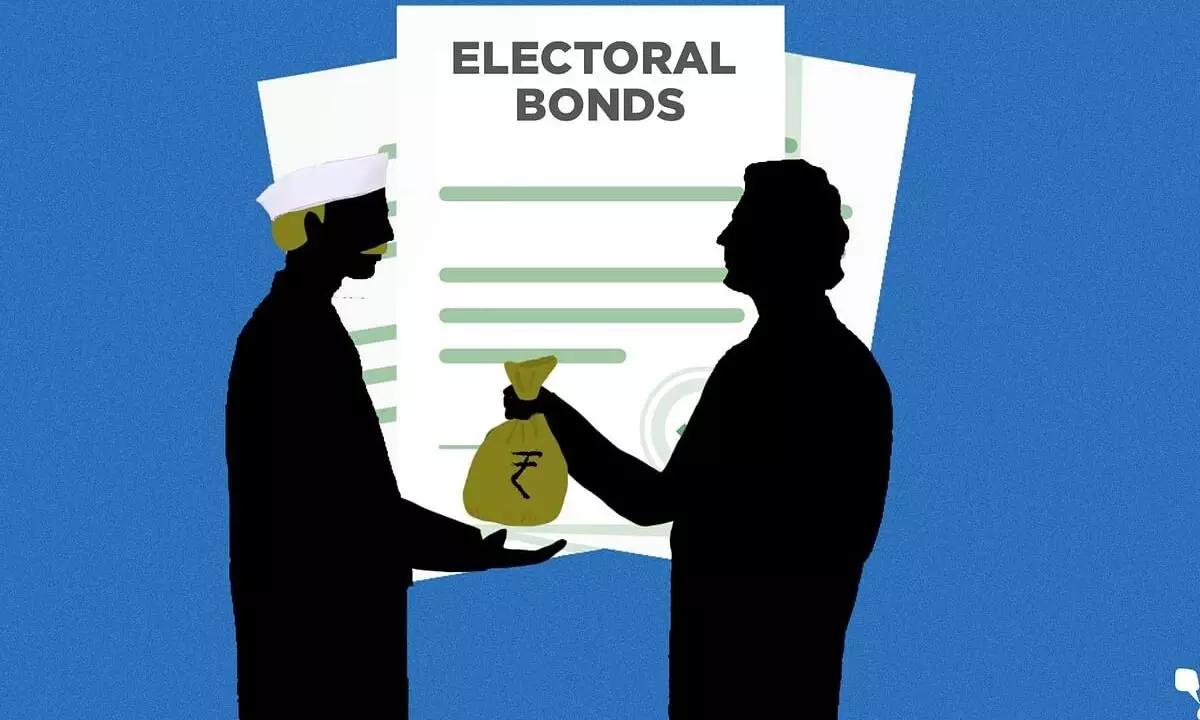
Electoral Bonds on trial: Supreme Court to rule on transparency
text_fieldsNew Delhi: A five-judge bench led by Chief Justice of India DY Chandrachud is scheduled to hear a series of petitions challenging the constitutional validity of the controversial electoral bonds scheme introduced by the Centre today.
First unveiled during the Union Budget session in 2017, electoral bonds are essentially interest-free "bearer instruments" that facilitate anonymous donations to political parties.
Sold in denominations ranging from Rs1,000 to Rs1 crore, these bonds can be acquired from authorized State Bank of India (SBI) branches through accounts complying with Know Your Customer (KYC) norms. The unique feature of these bonds is their availability for purchase only during specific 10-day windows in January, April, July, and October.
The scheme, introduced with the declared aim of cleansing the political funding system and enhancing transparency, has faced scrutiny since its inception. Critics argue that it allows for unlimited political donations, even from foreign entities, since donors remain anonymous, while proponents maintain that it brings about much-needed financial transparency in India's electoral system.
The electoral bonds scheme has faced legal challenges since 2017, with the first batch of petitions filed by NGOs Common Cause and the Association for Democratic Reforms (ADR). These petitions sought to strike down amendments made through the Finance Acts of 2016 and 2017, arguing that the scheme enabled unlimited political donations and lacked transparency.
Previous court rulings have provided mixed outcomes. While a three-judge bench, in an interim order in April 2019, directed parties to submit details of bonds to the Election Commission of India (ECI), subsequent challenges to halt the sale of fresh bonds were dismissed in March 2021. The court asserted that the scheme's operations were not entirely opaque, emphasizing certain safeguards introduced in the April 2019 interim order.
The current legal battle involves four petitions filed by ADR, CPI(M), Congress leader Jaya Thakur, and a public interest litigation (PIL) by Spandan Biswal. Beyond challenging the electoral bonds scheme's constitutionality, the petitioners are urging the court to categorize political parties as public offices, subject to the Right to Information Act. This move aims to compel parties to disclose their income and expenditures.
The Election Commission has consistently expressed reservations about the electoral bonds scheme. In May 2017, the ECI objected to amendments exempting political parties from disclosing donations received through these bonds, labelling it a "retrograde step". Moreover, in March 2019, the ECI highlighted concerns about changes allowing political parties to receive contributions from foreign companies, potentially leading to unchecked foreign funding with implications for Indian policies.
Attorney General R Venkataramani, representing the Centre, argued in written submissions that citizens' right to know is subject to reasonable restrictions. Defending the electoral bonds scheme, he contended that it extends the benefit of confidentiality to contributors, promoting clean money contributions. The Attorney General maintained that the scheme complies with tax obligations and does not violate any existing rights.























